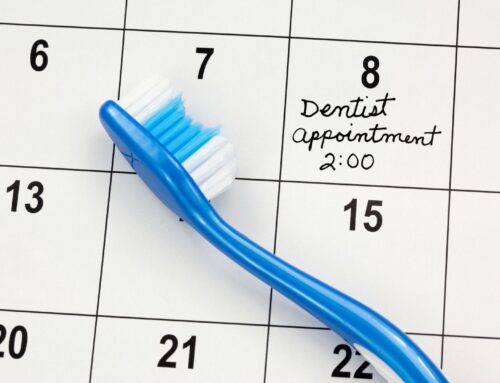We know that brushing and flossing is good for us, for many reasons. Brushing our teeth helps to remove plaque and bacteria from our teeth and gums, which can help to prevent tooth decay and gum disease. Brushing our teeth also helps to keep our mouth clean and fresh feeling. Additionally, brushing our teeth can help to prevent bad breath and leave us with a whiter, more radiant smile.
But did you know a healthy mouth also acts as a first line of defense against viruses? It’s true! Proteins called interferon lambdas act as security guards in our mouths. They stall intruders and call in more specialized cells for backup to fight the pathogens before they’re able to travel to our stomach or lungs, causing illness.
Interferons warn our immune system that germs are present, triggering our immune system to send out immune cells (like white blood cells) to fight the germs. Therefore, interferons “interfere” with a virus’s ability to infect and multiply inside our cells, which is how they got their name!
We have interferons in nearly every cell in our body to help guard against diseases and even warn our immune system if cancer is present.
Researchers have found that these interferons can fight off viruses including SARS-CoV-2, the virus that causes COVID-19, as well as human immunodeficiency virus (HIV), herpes simplex, and papillomavirus (HPV). Our mouths are an important component of our immune system!
However, interferons are still susceptible to danger in their surroundings, and their numbers diminish when they don’t live in a healthy environment. A buildup of bad bacteria from poor hygiene, for example, can stifle their production. Low numbers of interferons weaken our mouth’s line of defense against invaders, making us more susceptible to infection.
The buildup of P. gingivalis, an oral bacteria, lowers the number of interferons in our mouth. P. gingivalis can cause plaque, gingivitis, and eventually periodontal disease. So, if we don’t don’t brush and floss enough, we can allow this bad bacteria to grow, and therefore inhibit the immune defenses we have in our mouths!
So, not only does a buildup of bad bacteria lead to gum diseases like periodontal disease, it can also make us more susceptible to catching other viruses and infections.
So, how do we keep our mouths healthy and support the production of our interferons?
Dentists recommend brushing twice a day, for a full two minutes each time. Additionally, flossing at least once every 24 hours is recommended to prevent the buildup of plaque. Plaque forms from bacteria in our mouths like P. gingivalis, and if we don’t keep it in check, it can harden into tarter that our dentist or hygienist must remove. Therefore, daily brushing and flossing, as well as regular checkups with your dentist and hygienist, is the most effective way to keep bacteria like P. gingivalis at healthy levels.
Your teeth, gums, and even your interferons will thank you for maintaining a healthy mouth!
Have more questions about oral health? Let DiGrazia Family Dentistry in Reno help address all of your concerns!
Source:
Science Daily, “How oral bacteria suppress protection against viral growth,” https://www.sciencedaily.com/releases/2022/01/220105094341.htm






